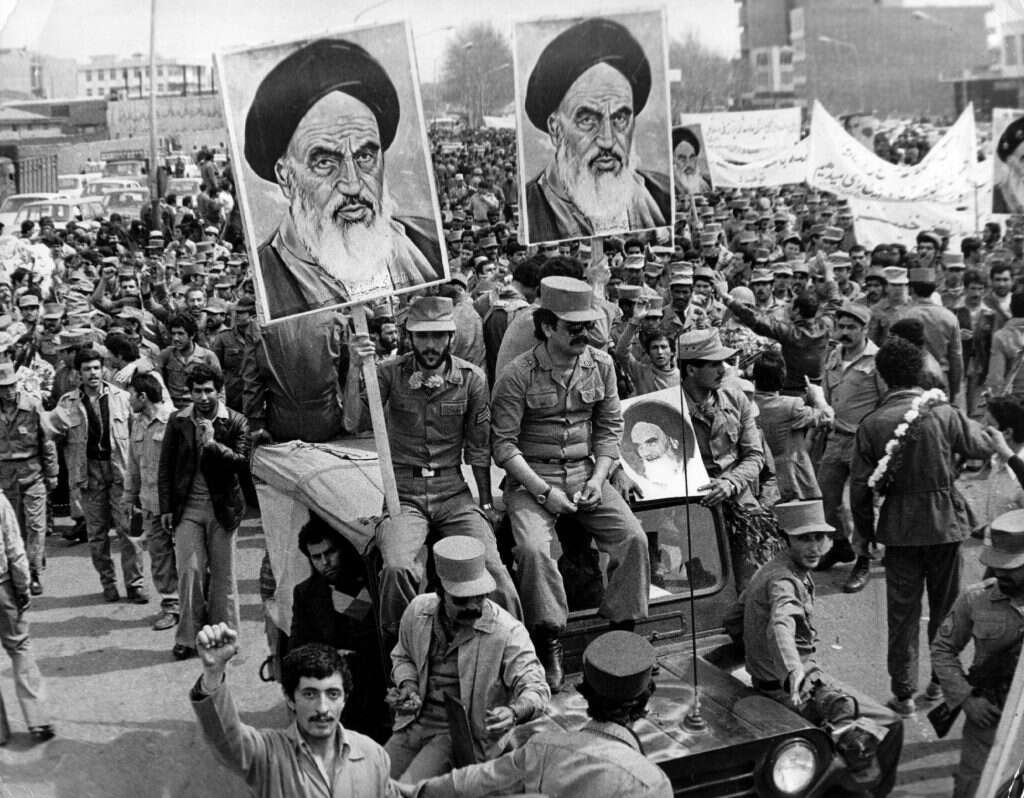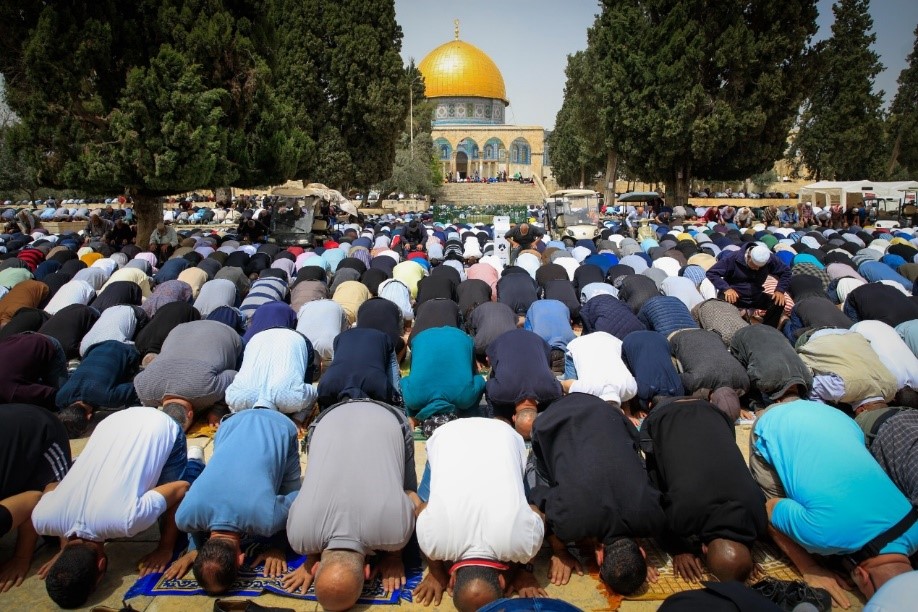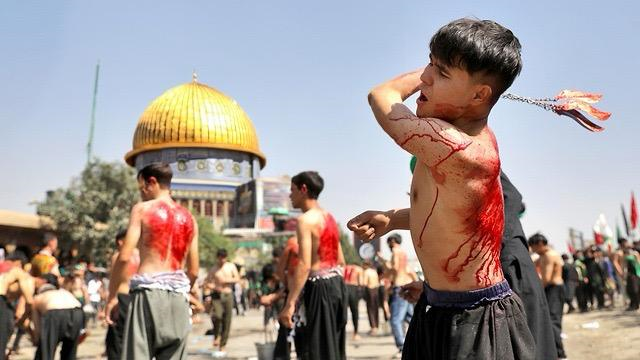Written By: Thamer Daudi
In a hypothetical scenario where Israel falls, Iran’s celebrations in Al-Aqsa Mosque could turn violent, leading to tragic consequences.
Iran’s Islamic Jihad, declared in 1979, has had a profound global impact. The world feels the shockwaves of the Islamic Republic of Iran’s revolution, with conflicts becoming ubiquitous yet often ignored. This apathy is evident in our daily routines, overshadowed by mundane activities.
Iran’s ambition seems unyielding: a world either adhering to Shia ideologies and Sharia law or engulfed in conflict. Iran’s commitment to establishing a Shiite utopia is unwavering.
The Western world struggles to comprehend this shift. Historical events and cultural evolutions, such as the Thirty Years’ War, the World Wars, the Cold War, and the Enlightenment, have skewed Western perception. This perspective blinds them to the multifaceted war they face: ideological, religious, and physical.

The 1979 Khomeini coup marked a significant shift. To many in the West, terrorist attacks are isolated incidents, and tragedies like the Notre Dame fire are seen as mere accidents. Western ignorance of cultural diversity and the influx of Muslim immigrants leveraging welfare systems are viewed benignly, indicative of cultural openness. This naivety could lead to the West’s downfall, not through overt conquest, but through a subtle and gradual takeover of institutional power.
The Iranian campaign against Israel is complex, fuelled by deep ideological battles and strategic considerations. In Shia Islam, Jews are seen as impure. The creation of Israel is viewed as a historical mistake to be rectified. Iran also perceives Israel as a symbol of Western imperialism.

Iran’s anti-Israel stance garners internal and external support, particularly in the Sunni world. Iran’s indirect conflict with Israel, due to the lack of a common border, minimizes repercussions while maximizing propaganda gains.
Western indifference to Iranian anti-Semitism exacerbates this issue. Western policies, which often oppose Israeli principles of nationality, religion, and borders, further alienate Israel.

The potential fall of Palestine could signal a broader collapse within the Sunni world. The Palestinians’ turn to Iran, a historical anomaly, might signify a broader shift in regional dynamics. Iran’s strategy includes symbolic gestures like supporting the Palestinian cause and material support through training and funding. This approach could lead Sunni Arabs to inadvertently support a regime that fundamentally opposes their values.
The consequences for the Sunni world could be dire. Aligning with Iran might lead to a catastrophic weakening and eventual subjugation. The fate of the Sunni world, tied to Iran’s ambitions, presents a critical juncture.

In conclusion, the Iranian Shia jihad, using the Palestinian issue as a vehicle, presents a complex challenge. Western funding, combined with Iranian ideology and Palestinian manpower, creates a volatile situation. The potential downfall of the Palestinians could prelude a larger Sunni collapse, further weakening both Israel and the broader Western world. This scenario warrants careful consideration and strategic planning.

























